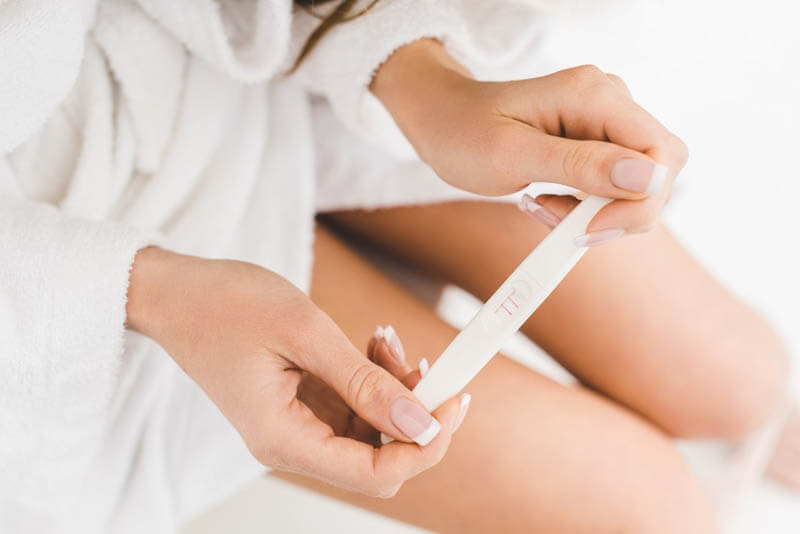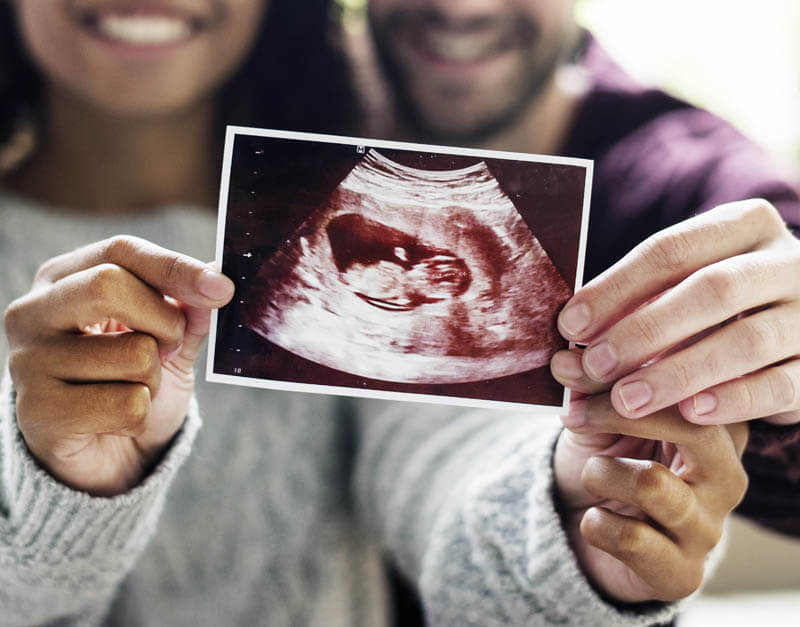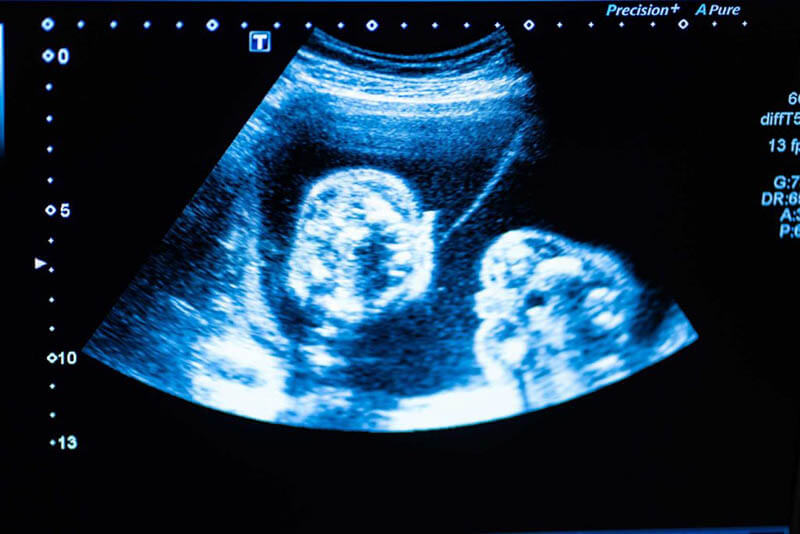The first thing prospective parents strive to hear during the ultrasound screening is the heartbeat of their child. It is an impressive milestone for any family, so there is nothing extraordinary for them to ask “When does a baby have a heartbeat?”
It is crucial to remember that a fetus goes through different stages of development, each one of them being equally significant. Parents can be sure the heartbeat of their child starts on the fifth week of pregnancy. However, it may be fully assessed later, around weeks 6 and 8.

Fetus Development: When Does a Fetus Have a Heartbeat?
Pregnancy is an exceptionally important and responsible time in the women’s life. Even though doctors refer to the fetus as an embryo up to the 8th week of pregnancy, women treat them as babies from the very first day. The most common question you may hear during the first trimester is “Which day baby heartbeat starts being detectable?”
Generally, the child’s heart starts developing from approximately week 5 of pregnancy. Then it undergoes crucial changes and transformations up to week 10. Doctors agree that up to that time, it is fully formed and functioning. It means that the heartbeat can be detected from the fifth week. Keep in mind that the heart rate may vary a lot due to specific processes that take place in the baby’s body. Regular ultrasound checks will help you warn any abnormalities and disorders related to the fetus heart development.
How to Detect Baby’s Heartbeat?
Pregnancy is an exceptionally individual period, the development of which will depend on the woman, her health, and some other factors a lot. The doctor may recommend a fetal heartbeat detecting scan at various stages of pregnancy. Women who notice bleeding, spotting, or similar abnormalities may need a scan during the 5th or 6th week.
Basically, it is inevitable to remember that a medical specialist may advise you to have an ultrasound during the first trimester to guarantee the maximum safety and flawless health of the baby. At this point, the question “When does a baby have a heartbeat?” becomes less important, as women get more concerned about “Why is heartbeat detection so important?”

Following the results of medical studies, an early ultrasound screening may be performed for several reasons:
- To make sure the woman is pregnant;
- To estimate the age of the fetus;
- To check how many fetuses there are;
- To detect any disorders or ailments;
- To eliminate any risks.
Specialists specify numerous effective methods on how to detect a baby’s heartbeat:
- Transvaginal scan. This is the best way to detect the heartbeat of the fetus at an early stage. Although it may be undetectable up to weeks 5-7, transvaginal scanning is the most efficient method of diagnostics that is commonly used up to the 11th week of pregnancy.
- Transabdominal scan. It is another method to track the development of the fetus. This method is used mainly during the second and third trimesters to see the heart beating. Additionally, with the help of the transabdominal scan, a doctor may specify the age of the fetus, its condition, and other specifications. It is an effective way to prevent premature labor and eliminate other risks.
- Fetal heart rate testing. This is the method used during the last stage of pregnancy. In the vast majority of instances, fetal heart rate testing is used during labor to ensure the maximum safety of the baby and avoid any negative consequences.
Why Heartbeat May Not Be Detected
While the vast majority of pregnant women and their husbands are concerned about the question “At how many weeks does a baby have a heartbeat?” others are worried about an inability to hear it. Nevertheless, if your baby is over 5 weeks and the heartbeat is still not detectable, it may happen due to various factors, such as the following:
- The scanning was performed too early;
- The woman has a larger abdomen;
- The woman has an ectopic pregnancy.
When the fetus is around 7 millimeters long, the doctor is likely to hear its heartbeat. In some cases, when it is undetectable, the woman will have to come again in a few weeks.

How Early Does a Baby Have a Heartbeat: Basic Changes throughout Pregnancy
Does an embryo have a heartbeat?
When does it start?
When can it be heard?
These are some of the most common questions pregnant women ask. However, medical specialists emphasize that this point is ultimately individual and can differ drastically. It is also important to remember that the baby’s heart will develop throughout pregnancy and start at around 90 bpm and may increase up to 170 bpm.
Regular checkups are indispensable as they will help you eliminate any risks related to abnormally fast or slow heartbeat. In some cases, a fetal echocardiogram is advised, especially when the doctor is concerned about the development of the baby’s heart.
All the recommendations and tips listed here are based on the information provided by a range of highly respected institutions, among which are the FDA (Food and Drug Administration), WHO (World Health Organization), and AAP (the American Academy of Pediatrics).

